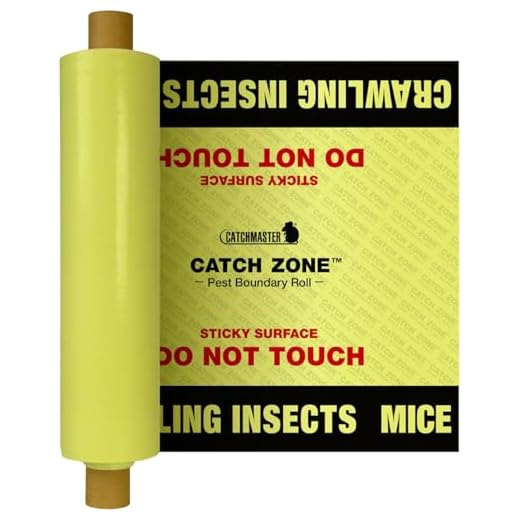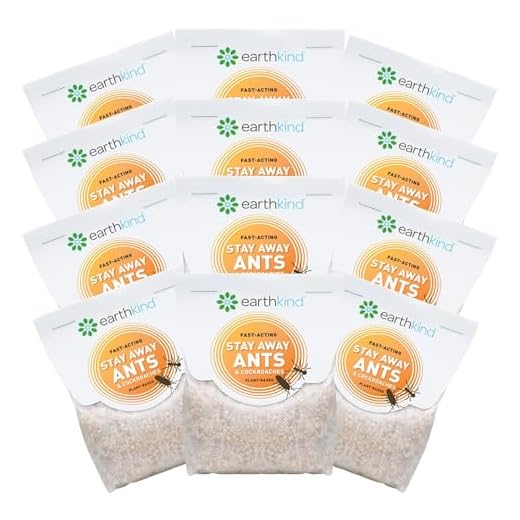



Setting up a feeding area for me is great, but it’s a challenge when tiny intruders invade my space. Placing my bowl in a shallow dish filled with water creates a barrier that those little critters can’t cross. This simple moat keeps them at bay and lets me enjoy my meals without interruptions.
Another trick involves using citrus peels around my dining spot. Those bright, zesty rinds act as a natural repellent. Just scatter some orange or lemon peels nearby, and the scent will deter any unwanted visitors while adding a fresh aroma to the area.
For those who prefer a more hands-on approach, consider creating a homemade mixture of vinegar and water. Spray it lightly around the bowl’s perimeter to keep the tiny foragers away. The strong scent isn’t pleasant for them, allowing me to dine in peace.
Lastly, sealing any potential entry points in the home helps prevent these little wanderers from finding their way inside. Regularly checking for gaps or cracks can make a significant difference. A few small changes can ensure that my dining experience remains undisturbed.
Tips for Keeping My Meal Safe
Using a feeding station can be a game changer. Choose a shallow dish with raised edges or a tray that creates a barrier. This simple setup makes it harder for little intruders to reach my meals.
Applying a thin layer of petroleum jelly around the dish helps too. It creates a slippery surface that makes it tricky for unwanted visitors to cross. Just be careful not to get any on my kibble!
Consider placing my bowl in a larger container filled with water. This moat-like approach prevents any uninvited guests from getting to my dinner. It’s a clever trick that keeps my meals secure.
Regular clean-up is key. After my meals, promptly remove any leftover bits. Keeping the area tidy reduces the chances of attracting unwanted guests.
Experimenting with different feeding times can also help. If I eat at irregular hours, it confuses the little critters and keeps them guessing.
Using natural deterrents like cinnamon or peppermint oil around my feeding area can be effective. These scents are unappealing to those tiny creatures and can help keep them away.
Lastly, sealing any entry points in the house is essential. Inspecting for cracks and gaps around windows and doors ensures my home stays a safe haven for my meals.
Identifying Ant Trails and Entry Points
To effectively manage the little intruders, I look for their paths. These lines often appear as tiny, dark trails on surfaces leading to a food source. Follow these trails to discover where they originate. You might notice them along walls, countertops, or floors.
Finding Entry Points
Inspect around doors, windows, and any cracks in the walls. Common access areas include gaps near pipes or vents. I recommend sealing these openings with caulk or weatherstripping. This acts as a barrier, making it harder for them to invade my territory.
Monitoring Activity
After locating the pathways, observe the traffic. If there’s a consistent flow, it indicates a strong colony nearby. Setting up simple traps along these routes can help monitor their numbers. A mixture of sugar and water can attract them, allowing you to see how many are present.
Identifying these trails and entry points is a key step in protecting my meals from those tiny creatures. It helps me stay one paw ahead in the battle for my snacks!
Choosing Ant-Repellent Cat Food Bowls
I’ve discovered that selecting the right bowl can make a big difference in keeping my meals safe. Look for options with raised edges or a design that makes it difficult for little critters to access the yummy treats. A bowl with a lip can prevent unwanted guests from climbing in.
Another smart choice is a bowl made of heavy materials like ceramic or stainless steel. These are less likely to be tipped over, which means fewer chances for that pesky invasion. Plus, they’re easy to clean, which is a bonus for maintaining a tidy eating area.
Some bowls come with integrated barriers or features specifically designed to deter intruders. These can include water-filled moats or specially designed surfaces that are hard for them to grip. Investing in one of these can save me from worrying about sneaky visitors during my mealtime.
It’s also important to consider the bowl’s placement. Keeping it away from walls or corners can reduce easy access points for those little nuisances. Elevating the bowl on a stand can create an extra layer of protection against any unwanted munchers.
Lastly, always choose a bowl that suits my style. A bowl that matches my personality not only keeps my meals safe but also adds flair to my dining area. After all, I want my meals to be as delightful as I am!
Implementing Physical Barriers Around Feeding Areas
Creating a protected zone around my feeding spot is a must. I recommend using a shallow tray filled with water as a moat. Place my bowl in the center, ensuring no little creatures can cross the wet barrier. This simple method keeps them at bay effectively.
Another idea is to elevate my food dish. Position it on a sturdy platform or table, at least a foot off the ground. This distance makes it challenging for any intruder to reach my meal, ensuring I enjoy every bite without interruptions.
Utilizing sticky traps around the feeding area can also help. These traps catch any curious visitors trying to get too close. Just be sure to place them strategically, avoiding any risk to my furry paws.
Consider using a feeding station designed specifically for pets. These stations often have enclosed spaces or lids that can deter uninvited guests. They can offer a safe haven for my meals while maintaining an inviting atmosphere for me.
Lastly, keeping the feeding area clean is crucial. Regularly removing leftover morsels and cleaning the space reduces attraction, making it less appealing for those little invaders. A tidy area means more peace for me during my mealtime.
Using Natural Deterrents to Keep Ants Away
Mix equal parts of water and vinegar in a spray bottle. This solution can be sprayed around the feeding area to create an unpleasant environment for those little invaders.
Another option is to sprinkle cinnamon or cayenne pepper near the dishes. These spices are known for their strong scent, which can help to repel unwanted visitors.
Essential Oils
Using essential oils like peppermint, tea tree, or lemon can be effective. Just dilute a few drops in water and spray around the feeding zone. The strong aromas will deter intruders.
Natural Barriers
- Diatomaceous earth can be spread around the feeding area. It’s safe for pets and creates a barrier that makes it difficult for insects to cross.
- Coffee grounds can also be used. Sprinkling them around the bowls not only adds a strong scent but also creates a physical barrier.
Regularly changing the location of the feeding area can disrupt any established trails. Moving the bowls to new spots can confuse and deter them.
Establishing a Regular Cleaning Routine for Feeding Spaces
To keep my dining area free from unwanted visitors, I recommend cleaning the feeding space daily. After I finish my meals, it’s important to remove any leftover kibble or wet food immediately. This prevents attracting critters looking for an easy snack.
Using warm, soapy water to wipe down my bowls and the surrounding area helps eliminate any lingering scents. I prefer using a cloth rather than paper towels, as it’s more effective at picking up the tiny particles that might attract pesky guests.
Additionally, consider establishing a weekly deep-cleaning schedule. This includes washing the bowls in the dishwasher, if possible, and sanitizing the floor beneath the feeding area. It’s a good idea to check for any hidden crumbs and wipe down surfaces with a safe cleaning solution.
| Cleaning Task | Frequency |
|---|---|
| Remove leftover food | Daily |
| Wipe down bowls | Daily |
| Deep clean bowls | Weekly |
| Sanitize feeding area | Weekly |
By keeping my feeding zone tidy, I can enjoy my meals without worrying about uninvited guests. If you’re also looking for ways to maintain a clean litter area, check out the best litter for long hair cats.
Finally, having a digital camera ready, like the best budget Samsung digital camera, can be helpful to document your cleaning progress or any changes in my feeding habits. Keeping track visually can help refine the routine as needed!










